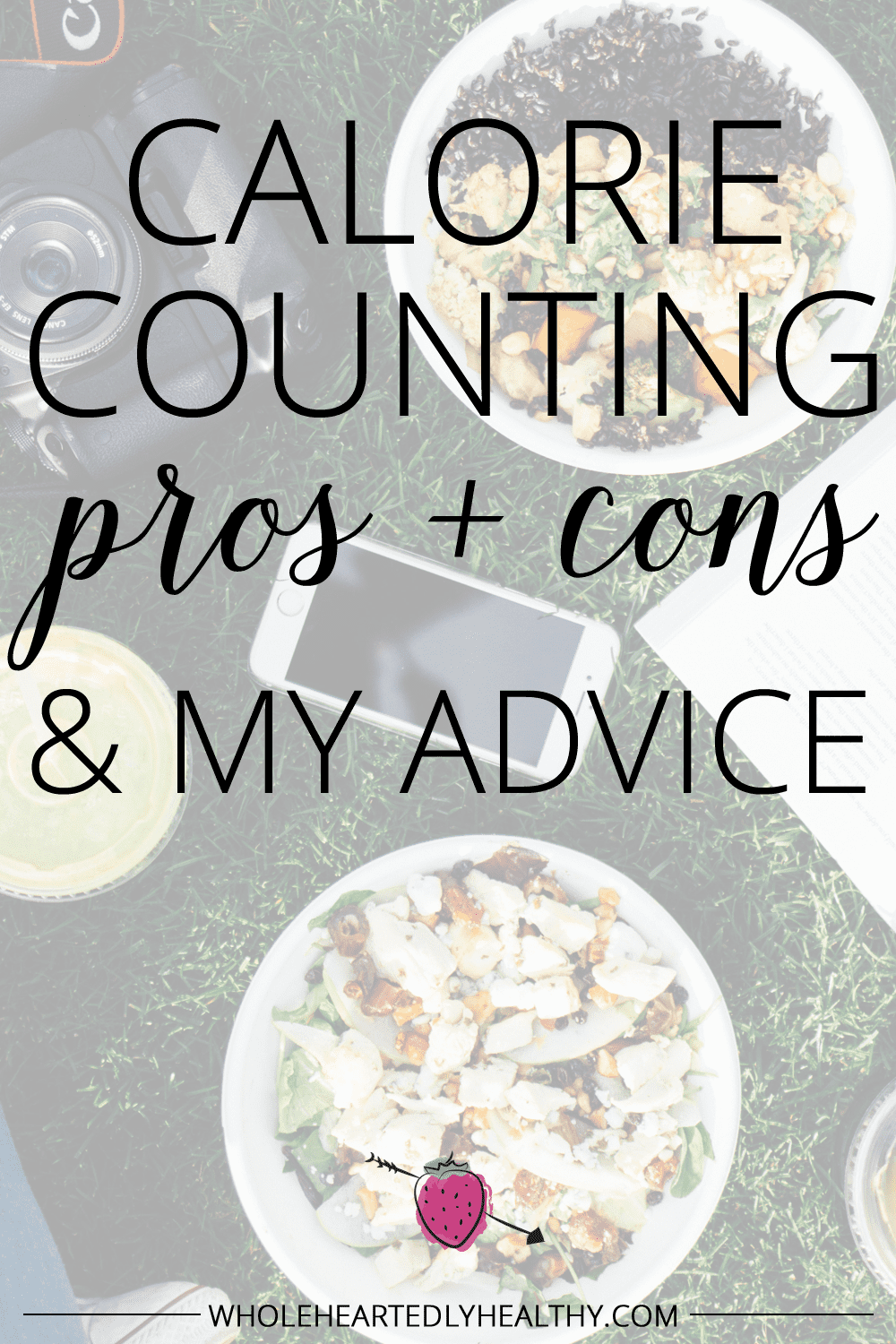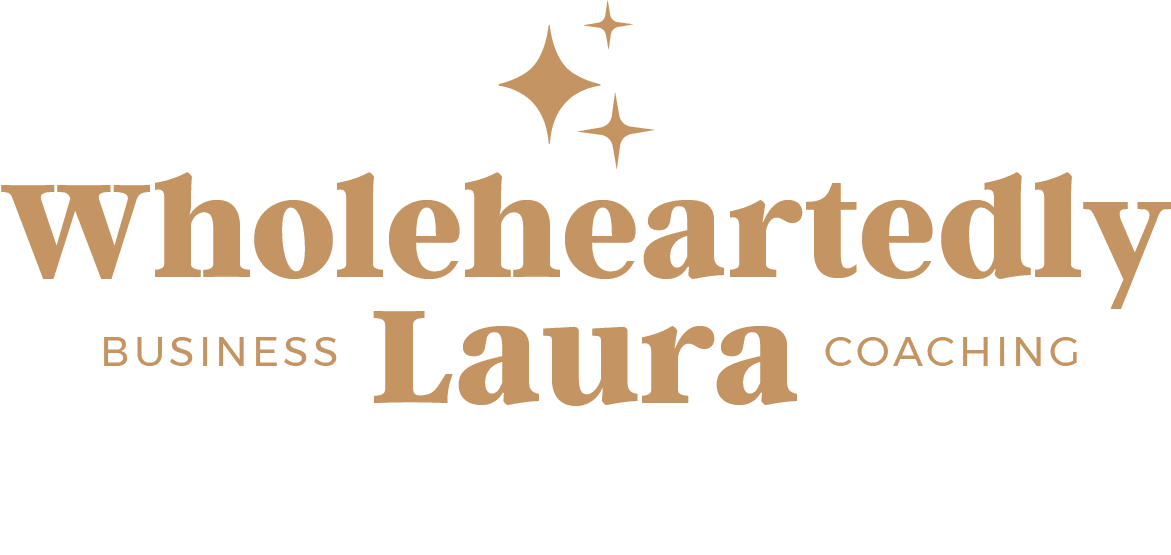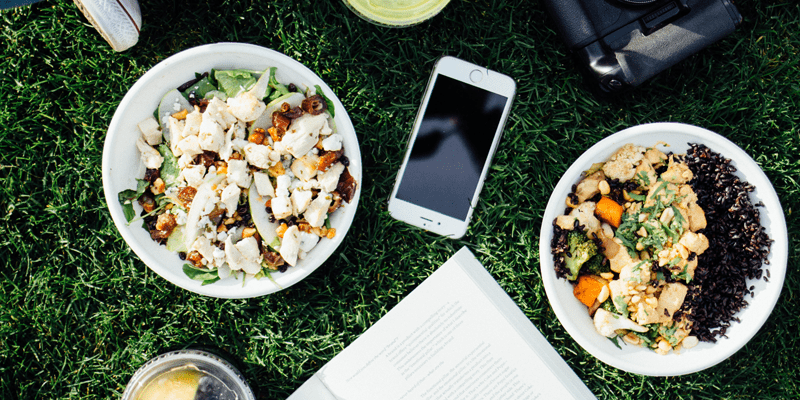

One of the questions I get asked all the time as a health coach is whether or not I agree with calorie counting as a way to support weight loss. This is such a juicy topic I thought I’d cover my answer in a blog post because, as with most things weight loss related, the answer isn’t always black and white!
I’ve dabbled with calorie counting a couple of times, most successfully back when I was trying to gain weight without bingeing. I was delighted with how much I could eat! When I’ve tried it for weight loss, it’s personally never worked for me for many of the reasons I’ll give you below.
Calorie counting is still a fairly popular way for people to try and lose weight. Apps like MyFitnessPal are used by probably millions of people daily to track the calories they eat, as well as for some people, their macro nutrient ratios too.
The cons
My issues with calorie counting start with the same issue I have with diets that count points etc. They aren’t sustainable in the long term, at least I don’t think they are for most people. I personally wouldn’t want to have to count calories for the rest of my life, and as calorie counting alone doesn’t teach us about nutrition, forming habits or lifestyle changes, the likelihood is that once you stop, you’ll gain back any weight you’ve lost.
Another issue I have is that calorie counting doesn’t take into consideration the nutritional value of food. It’s very easy for the focus to be on low calorie ‘fake’ foods than higher calorie nutrient dense foods like coconut oil and avocado. As foods containing fat are generally higher calorie, calorie counting can push you towards a low fat diet when no other nutritional guidelines are in place.
If you’re calorie counting you most likely will also need to be measuring your food in some way. Again this might not be very sustainable and really doesn’t encourage connection to your natural levels of hunger and fullness.
As with all ‘diets’ the danger with calorie counting is the effect it can have on your mindset. What happens when you have a slip up and go over your calories? For a lot of people they’ll fall into an all-or-nothing diet mentality and will say f*ck it and overeat, writing that day off altogether and in doing so, doing more damage than they would have if they’d just accepted the slip up!
There have also been various studies that demonstrate how different each of our individual caloric needs are. We aren’t machines and you can’t treat your body like an equation where calories in – calories out will automatically guarantee weight loss. There’s so much more to nutrition and weight loss than that.
The pros
Although I generally wouldn’t advocate calorie counting, it can be helpful for some people when it’s done fully consciously of the cons above and for a shorter period of time and with the right support
For many of us, myself included, it’s hard to trust our natural hunger levels after years of dieting. A short period of calorie counting with some support from someone knowledgeable in nutrition and mindset could be helpful in reconnecting a person to how much is the right amount of food for them to eat.
Calorie counting can also offer a form of ‘control’ but in a way that could be potentially less damaging than going on a full on traditional diet.
Another benefit of an app like MyFitnessPal is that it enables you to track macros. Macros are your macro nutrients: protein, carbohydrate and fat. For me, this is actually a much more useful measurement to be aware of as a lot of us don’t eat enough fat or protein. Beware though, the standard MyFitnessPal settings for suggested macros aren’t something I’d recommend sticking to.
If you really wanted to try calorie counting, this would be my advice:
- ♥ Don’t use the suggested calorie allowance or macros that MyFitnessPal spits out, do some research first and maybe try a calculator like this one.
- ♥ Never ever go below 1500 calories unless you’re very short. Even then, 1200 calories is a really small amount of food and could cause your body to hang on to fat rather than burn it.
- ♥ Have a flexible calorie goal – rather than give yourself an allowance of 1500 calories, go for an allowance of 1500 – 1700. This enables you to eat more on some days and less on others as is normal!
- ♥ Have a 500 calorie treat allowance – perfect for being treat smart, rather than calorie counting out the treat, just pop a 500 calorie entry in and enjoy it!
- ♥ Get some professional support from a coach.
- ♥ Rethink your decision and make sure it’s right for you!
As much as I’ve given you that advice, I’d still encourage you to try a different approach rather than calorie counting! My Fabulous YOU Collection gives you a range of resources packed with ways to manage portion sizes and lose weight without having to count anything. Check it out here >>>
For me, the bottom line is that calorie counting reduces food down to a number. It takes much of the joy out of food and doesn’t really help you become healthy and happy in the long term.
What’s your experience of calorie counting?



I’ve recently started losing weight through counting calories, and using My Fitness Pal. I find it a really useful guide to how I am doing on a daily basis. It helps me keep track of portion sizes as I have a tendency to eat too much all the time, I just love food too much! I therefore don’t mind the weighing/measuring as I find it helps me maintain sensible eating, and I definitely don’t go hungry.
Completely agree that fewer calories definitely doesn’t equal weight loss, personally I find my body doesn’t do well with too many carbs, and I am regularly way off the suggested ratios on My Fitness Pal – curious what you would recommend switching from their guidance? I find I eat more fat and protein and way less carbs. Seems to be working for me so far – 5kg down and counting! I think as long as you have a basic idea of what goes into a healthy diet, calorie counting can be a great way of checking portion control and keeping you on track.
I’m actually a fan of calories counting but to only to a certain extent. I generally use a combination of macros and calories rather than just calories. I know I need a lot of carbs for my running and protein for muscle repair and a lot of calories to support my training so I like to keep an eye on this during the week. But I don’t track everything religiously, I just have an awareness of the choices I make. And never at the weekend as I never really know what I’m going to eat as I’m likely to be going out or having something completely different to eat than I would in the week.
But there is always the danger of getting obsessed over it – which is why I tend to vaguely track rather than document entirely… I do think it’s a good idea though for people trying to lose weight – but macros, micronutrients AND calories rather than just calories as this provides a better understanding of food. And with tracking things it can help people understand their bodies and how many calories etc. they actually need, rather than just using an arbitrary number given in a magazine.
Counting calories is fine if you’re sensible. I’ve been overweight most of my life and I could probably tell you the calorific value of 90% of everyday foods. Which would be fine (sad, but fine) except subconsciously counting calories as a way of life is NOT healthy and I have often found myself eating to my calorie allowance, rather than eating because I was hungry. For example, being ‘allowed’ something because I had calories left over.
It can all get a bit disordered. I have to try and stay away from calorie counting and just eat ‘clean’. I’m getting there with it, but its not easy.
This was a really interesting read. I know there’s a lot against calorie counting in the health blogger community but I actually do find it useful – I tracked calories when I first lost weight and when I stopped for a year or so I found that I did start to slowly gain, even though I thought I was eating healthily. Counting calories keeps me on track as I’m definitely not an intuitive eater and it helped me see where I was going wrong (100g of nuts as an afternoon snack at my desk, for example). I now track properly Monday – Friday as my week day eats are pretty consistent but I’m more relaxed at weekends as I tend to try different foods or eat in restaurants which is harder to be accurate about. I do feel like I’m in a better position to when I counted calories previously as I know that 200 calories of avocado is better than 200 calories of processed “diet” rubbish but counting means I don’t give myself carte blanche to over do nut butters, medjool dates and dark chocolate as even healthy calories (sadly) add up! I’m definitely going to start aiming for a range rather than a set number each day and I like the idea of the treat as well – still trying to find the balance between weight loss and healthy eating it’s definitely an on-going process! x
I agree with this- I counted calories to lose weight, and it worked to a point, but it got a bit obsessive, and like you say, the healthier foods are not always lower in calories. Plus I used to worry about going to a friends house as I would not know how many calories would be in the food- a bit of a slippery slope, so I stopped. I also didn’t want to be doing that for the rest of my life- trying to get a healthy balance worked better for me in the end.
For me personally, counting calories can be a slippery slope. If my head isn’t in the right place it can all easily become a bit of an obsession, so I just simply avoid it. I eat what makes me feel good, what I feel my body needs and craves (though this could do with some work!). MyFitnessPal is just one of those things that I think, on the one hand can be such a great way of just tracking everything, but on the other I think it’s just begging vulnerable people to get lost in the mad world of obsessive tracking. I like a good, simple, honest food diary and just writing down how it’s made you feel etc, that can be really beneficial.
This is a really smart and well thought out guide though, well done Laura, I’ve bookmarked it!
She’s So Lucy
Thanks for writing this post Laura. I’ve actually gone back to tracking as I don’t have good hunger signals and eat emotionally/mindlessly, especially when under stress. I don’t beat myself up if I go “over” but planning my meals and writing down what I consume helps me to see patterns and eat sensible portion sizes. I’m going to use the calculator you suggested though and look more carefully at my macros!
That’s great Lexi! Yep, I think that for some of us we just need that way of tracking and sometimes that can really help if you have the right approach which I’m sure you’ll have after doing Fabulous YOU! ;-)
Yes, Yes and Yes, because Avocado and Cake are not the same nutritionally but counting calories doesn’t take that kind of thing into account. I had an argument with a lady who said you could eat 1500 calories of cake a day and be the perfect weight…lets just think about that for a moment ;)